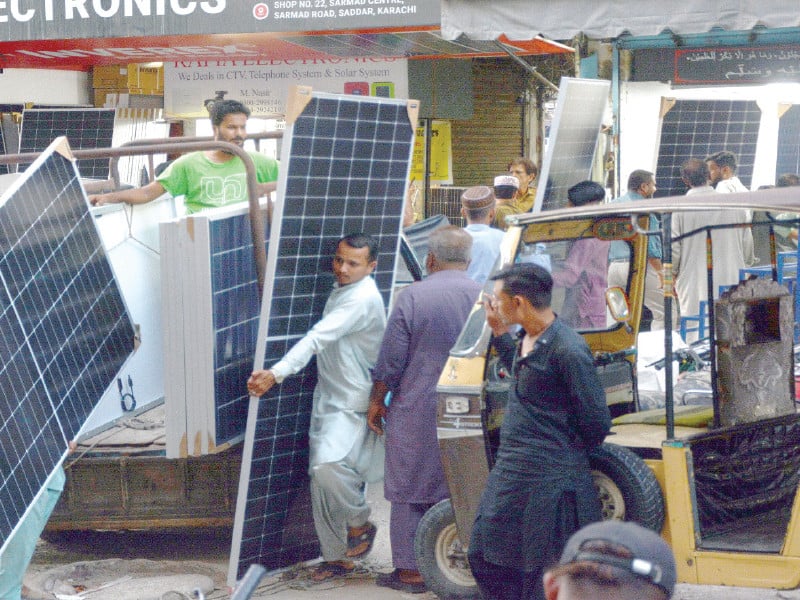KARACHI:
At a ceremony to sign framework agreements for solar systems, Sindh Chief Minister Syed Murad Ali Shah said that the Benazir Income Support Programme (BISP) will give 200,000 Solar Home Systems (SHS) to low-income households based on data from all of the province’s districts.

He stated that by the end of October, the first batch of 50,000 SHS kits would arrive in Karachi for distribution elsewhere.
Energy Minister Syed Nasir Shah, PSCM Agha Wasif, Sindh Energy Secretary Muadiq Khan, representatives from three private companies selected through competitive bidding, and other government officials attended the signing ceremony at CM House.
The Sindh Chief Minister said during the event that the Sindh Solar Energy Project (SSEP) is being carried out at a cost of Rs27.4 billion and is supported by the World Bank with $100 million.
According to Murad, the program would distribute 80-100W solar panels, Lithium-ion batteries, one DC fan, three LED bulbs, and a mobile charging facility.
The chief minister said that each system would cost about Rs55,000, including transportation, taxes, and duties. It will be given to low-income families who are eligible at a subsidy of 80%.
Criteria for selection The chief minister shed light on the criteria by stating that the BISP registration is used to select low-income households. In the beginning, households with a poverty score between 21 and 50 were chosen. Families with BISP information going from 0-20, which can’t bear to pay something like Rs6,000 for a pack, will get it under the Yearly Improvement Program (ADB plot) of the energy division.
Program procedure
[Old and New]
The CM referenced that the program was begun in 2020, yet the endowment was just 40%, making it hard for unfortunate families to bear the leftover 60% expense. Under the previous program, only 322 systems were sold. Despite the program’s delay due to the devastating floods in 2022 and COVID-19, the subsidy has now been raised to 80% with support from the World Bank.
The undertaking system was reexamined to expand the endowment, and the Mass Obtainment Model was taken on. At first, 10 regions were chosen, yet under the modified program, each of the 30 locale, including seven locale of Karachi, are incorporated.
The execution technique has moved to a Mass Obtainment Model through global offering as per the World Bank acquirement rules. The cost to beneficiaries will be Rs6,000.
Structure arrangements will be endorsed with the chose firms for the stockpile of 200,000 SHS units in various bunches all through the task period, finishing off with July 2025.
Minister of Energy Nasir Shah mentioned that three businesses were selected for the framework agreements out of 18 local and international bidders.
In the meantime, the Sindh Peoples Housing Foundation Project (SPHFP) has contracted five NGOs to handle distribution, installation, and replacement services, as well as collect SHS from the designated warehouses.
The Rs6,000 per SHS will be gotten from the recipients through a Sindh Bank Restricted Bank Challan receipt by these conveyance associations before conveyance. Through a web portal, a database management system for program transparency and stakeholder coordination has been developed.
The CM guided the priest to name Free Confirmation Specialists (IVAs) for irregular checks to guarantee SHS packs are simply dispersed to qualified families, to circle back to any announced issues, and to guarantee consistence by NGOs.











































